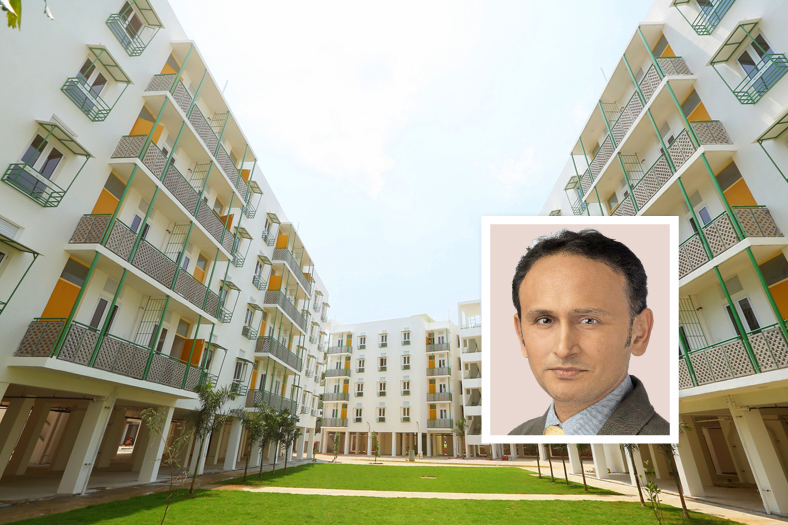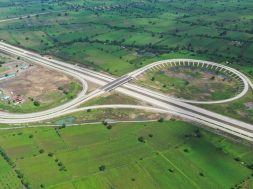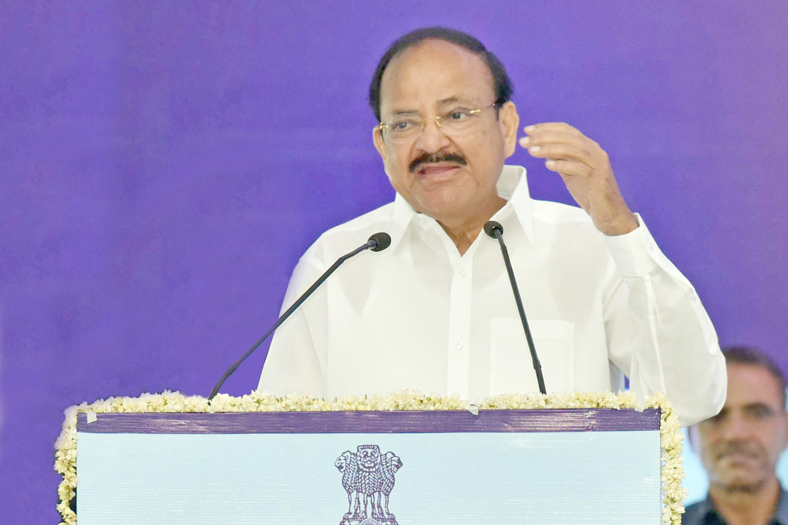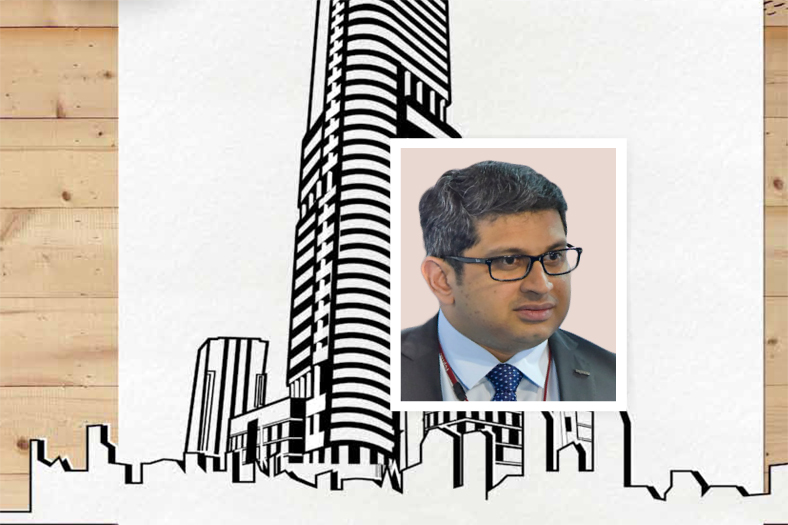Sustainable structures entail a resource-sensitive yet quality-conscious approach

Sustainable structures entail a resource-sensitive yet quality-conscious approach across the project life cycle; from design and construction, to occupancy and end of life.
Jaimin Desai, Head, Design and Sustainability, Mahindra Lifespace Developers Ltd
Watershed year for real estate infra
“2017 has been a watershed year for the Indian real estate and infrastructure sector, with the implementation of game-changing policies such as the Real Estate (Regulation and Development) Act, 2016 (RERA), and the resulting need for realignment to a brand new regulatory environment. In parallel, GST has occupied stakeholder bandwidth to set in place mechanisms for smooth adoption,” says Jaimin Desai, Head, Design and Sustainability, Mahindra Lifespace Developers Ltd while sharing his views on the recent performance of the construction industry in India.
He adds, “In residential real estate, demand in end-user-driven markets is now back to pre-demonetisation levels. However, recalibrating to a RERA-regime has also resulted in a slowdown in launches, with greater focus on project execution and sales of existing inventory. Affordable or ‘inclusive’ housing, already a compelling narrative of urban development in India, is now in sharp focus. The segment has emerged a key growth driver of Indian real estate, with unit sales and launches in the country’s top housing markets increasingly dominated by the sub-50-lakh category.”
Globally, growth in real estate is directly impacted by overall economic health, job creation prospects, and the ensuing need for urban and semi-urban accommodation. In this context, India has witnessed several positives for sustained, long-term growth. Improved ease of doing business rankings, a sovereign credit rating upgrade and significant FDI equity inflow into construction all indicate rising confidence in the sector, and the India growth story. “At Mahindra Lifespaces, given our long-term view of real estate as critical to the economy, and notwithstanding short term market fluctuations, we continue to focus on operational effectiveness, customer centricity and sustained growth in priority markets,” he adds.
To sum it up, Desai said, the Indian real estate sector is in the midst of a policy-driven shift towards increasing accountability and consolidation. Similar positive shifts across all segments – encompassing faster clearances, incentives for green development, low-cost institutional credit, etc, can accelerate growth momentum in the industry, strengthen its economic impact and make 2018 ‘a year to remember’ for stakeholders.
Increase structural durability with technology
Sharing views on the role of technology and solutions in making sustainable structures Desai says, “Sustainable structures entail a resource-sensitive yet quality-conscious approach across the project life cycle; from design and construction, to occupancy and end of life. At the design and construction stages, technology is a significant enabler of speed, cost optimisation and quality standardisation. Additionally, the innovative use of alternative building materials and ready-to-fit techniques can boost productivity and quality standards, while minimising waste. However, any new technology should be adopted only after a thorough evaluation of design intent and application criteria. When combined with the right sustainability intent, technology can increase structural durability, improve resource efficiency and enhance benefits to communities.”
A sustainable or ‘green’ structure is energy-efficient; offers ample day lighting and ventilation; and incorporates water and waste-management features from the conceptualisation stage itself.
Mahindra Lifespaces has adopted green construction practices across its projects since 2006. All its developments, be it residential projects, or Mahindra World City projects and industrial clusters (‘Origins’ by Mahindra World City), incorporate green architecture, environment-friendly building materials and a sustainable supply chain. The company is continually evaluating ways to conserve scarce natural resources, keeping in mind the local context – for example, reducing and replacing river sand in construction; converting food waste to bio-fuel; as also through the development of aforementioned world cities that are focusing on a zero-carbon roadmap.
As with any other sector, technology in construction involves extensive research, collaboration and innovation. For Mahindra Lifespaces affordable housing ‘Happinest’ projects in Chennai (Avadi) and Mumbai (Boisar), for instance, it studied more than 32 different types of technology and finally shortlisted three; it collaborated with IIT Madras for foundation design. Hybrid technology has helped the company construct the building envelopes of its Happinest projects with light weight blocks, thereby reducing thermal conductivity and heat ingress. The company has also partnered with TERI (The Energy and Resources Institute) to establish a centre of excellence focused on research on sustainable habitats and green building materials suited to Indian climate conditions.
Construction management integrated with BIM technology for the future
Technology is changing almost every aspect of the construction industry, enhancing product and service efficiency. “Construction management integrated with BIM can be a game changer for how projects are developed and implemented,” states Desai.
In an increasingly smart phone driven world, technology is also a disruptive element of the real estate customer’s brand experience. Mahindra Lifespaces has focused on technology-driven solutions to improve the home buyer experience and have launched a mobile app that offers both an augmented pre-handover module and a host of post-handover services, thereby straddling the entire customer lifecycle. The ‘M-Life’ app has been developed post extensive research and interactions with home buyers and offers convenience through real-time engagement, community development and other value added services.
Cookie Consent
We use cookies to personalize your experience. By continuing to visit this website you agree to our Terms & Conditions, Privacy Policy and Cookie Policy.









